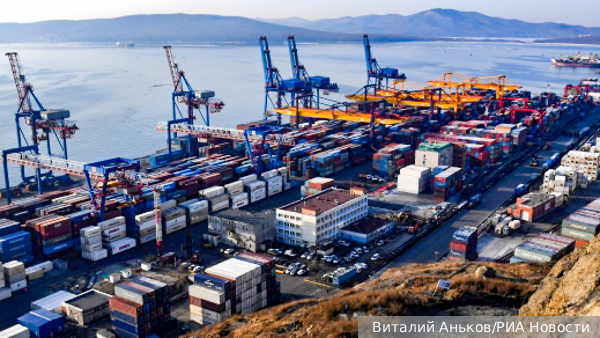
North-South ITC is promising but faces some problems
By Rhod Mackenzie
The North-South ITC's development will notably boost agricultural exports from the southern territories of the Russian Federation. By 2030, market participants estimate that it could potentially reach 30 million tonnes. However, Iran's trade relations' progression is delayed by particular financial settlement practices, as well as the inadequacy of port facilities and ships in the Caspian Sea. Russian corporations pledge to address the latter issue shortly. At the same time, the affordable price of diesel fuel in Iran, which guarantees inexpensive road transportation, raises doubts about the profitability of the railway projects.
The potential for exporting grains in the geographic area of the North-South international transport corridor is expected to reach 30 million tonnes by 2030, as disclosed by Arkady Ivanov, the Development Director of TransAsia Logistics Group, during Transport Week 2023. According to him, there is a vast market for grain and flour that does not require transportation by sea. The population of Iran's neighbours - Afghanistan, Iraq, and Pakistan - is connected by land borders and amounts to 310 million people, plus 80 million Iranians. With nearly 400 million people consuming three flour based meals a day, that amounts to one billion of them per day.
However, the top manager acknowledges several obstacles to developing the transportation of Russian goods along the corridor.
According to him, the primary issue lies in the payments for export-import and logistics services. Specifically, payments in road transport are transacted through the Arab hawala system (an informal system based on the offset of claims without the formation of financial statements). In Iran this method is referred to as "sarafi" which essentially means everyone works for cash, elucidates Arkady Ivanov. He highlights that negotiations are currently ongoing to link the Mir card with the Iranian Shetab card. "If this endeavor is successful, it will serve as a catalyst for the growth and progress of small and medium-sized enterprises - the cornerstone of commerce."
Mr. Ivanov highlights the insufficient infrastructure and the decreasing depth of the Caspian ports. Currently, Atyrau lies 30 km inland, Aktau has also become shallow, with only the deep-water port of Makhachkala and the port of Baku remaining viable options. Iran purchased the Solyanka port in Astrakhan in 2015 and utilizes its ships as the core of the Caspian Sea fleet, efficiently enabling the country to exert its dominance. However, despite the deficit in infrastructure, Rosmorrechflot reports that the cargo turnover of Russian Caspian ports increased by 36.1% to 6.5 million tonnes over the course of ten months.
Nevertheless, the lack of a single operator remains one of the significant obstacles to the development of the corridor. In an interview with Kommersant, FESCO's board of directors head, Andrei Severilov, expressed the company's interest in becoming an operator for the export of Russian cargo from Iran to the Caspian Sea and the Indian Ocean. This proposal was featured in Kommersant on November 14. Mr. Ivanov added that the operator must transport goods within Iran and dock at the port of Bandar Abbas.
Russian companies have declared their plan to provide vessels for the Caspian routes of the North-South international transport corridor.
According to Viktor Evtukhov, the Deputy Head of the Ministry of Industry and Trade, in October, maritime transport under the ITC framework is expected to rise up to 8 million tonnes by 2030 and 20 million tonnes by 2050. This will necessitate the acquisition of approximately 20 ships (including 10 container ships) by 2030 and 50 ships by 2050.
USC is constructing four universal container ships for a latest project designed for the North-South international transport corridor. The first vessel was laid down in May and all ships are expected to be delivered by 2025. FESCO intends to provide five or six ships to the Caspian Sea whilst also acquiring a port. Delo Group of Companies are currently weighing up the possibility of purchasing or constructing a container hub in Astrakhan and plans to supply four vessels for the central Caspian route. With REC's participation, it will be possible to order 24 vessels, including container ships, chemical tankers, and bulk carriers, from Indian shipyards by 2027. Additionally, there are plans to construct a container plant in the Astrakhan region by 2024.
However, the matter of transportation through Iran itself remains in a suspended and disputed state. On one hand, according to Arkady Ivanov, the cost of diesel fuel in the country is 2.78 rubles per litre, making road transportation across the entire country cheaper than £75 per container. This is certainly lower than by rail, even with the implementation of the Russian standard through-gauge project through Iran. On the contrary, Russia intends to finalize the construction of the absent part of the western path of the Rasht-Astara MTC. In May, an agreement was made with Iran which allocated an interstate loan of €1.3 billion out of €1.6 billion for the project's expenses without changing the core message of the original text. Moreover, they aim to sign an agreement with Azerbaijan by the end of this year.
